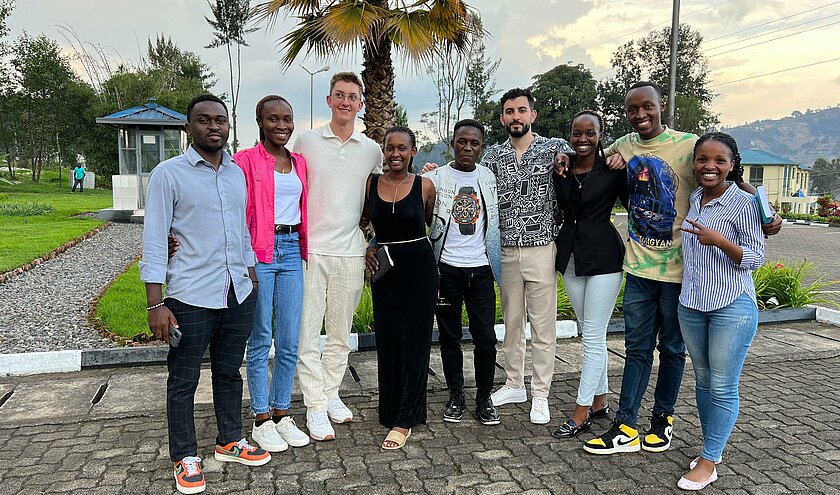Events & Guest Lectures
Event on "Applied Sciences as Drivers of Innovation in Africa - How to Support the Developmental Contribution?"

The lack of practical education in African higher education is a frequently lamented problem that has led to a shortage of skilled workers and, at the same time, high unemployment and underemployment of academics. The German model of universities of applied sciences promises solutions. For this reason, an event on "Applied Sciences as Drivers of Innovation in Africa - How to Support the Developmental Contribution?" took place in Berlin on January 26. The event addressed members of the german parliament and was organized by the German-African Business Association and the University Network HAW Afrika under the patronage of Dr. Karamba Diaby MdB. We are delighted that Prof. Dr. Thomas Bayer was part of the event's program with a keynote from science.
Review: Africa where to - Politics, Economy and Migration
On 22 June 2022, we had the honour to welcome Dr. Prinz Asfa-Wossen Asserate for a guest lecture on "Africa where to - Politics, Economy and Migration" at HNU! Dr. Prinz Asfa-Wossen Asserate is a publicist and business consultant for Africa and the Middle East at government levels and has already published several books on the relationship between Africa and Europe, and Germany in particular.
What insights did the lecture provide?
- The demographic differences in Africa and Europe are particularly large. While the average age in Europe is getting higher and higher, Africa has a remarkably large number of young inhabitants with an average of 20 years and should offer them opportunities to be educated. This is a big challenge, but Africa and Europe could support each other in this.
- An overarching goal of these two parties should be the long-term upswing of Africa. Through trade under fair conditions - which is the best development assistance - Africa's youth could find a way out of poverty.
- It is important that investments in African countries do not only benefit elites, but the entire population. Therefore, Europeans must not give in to elites only because of their high level of influence.
- Countries must develop from within, which means that government and population must work together.
- Botswana is an example of good governance with its own pension and health insurance, free elections, rule of law and no foreign debt.
Beyond that, many more important insights were gained.
We would like to thank everyone for attending the lecture and taking part in the lively discussion!








